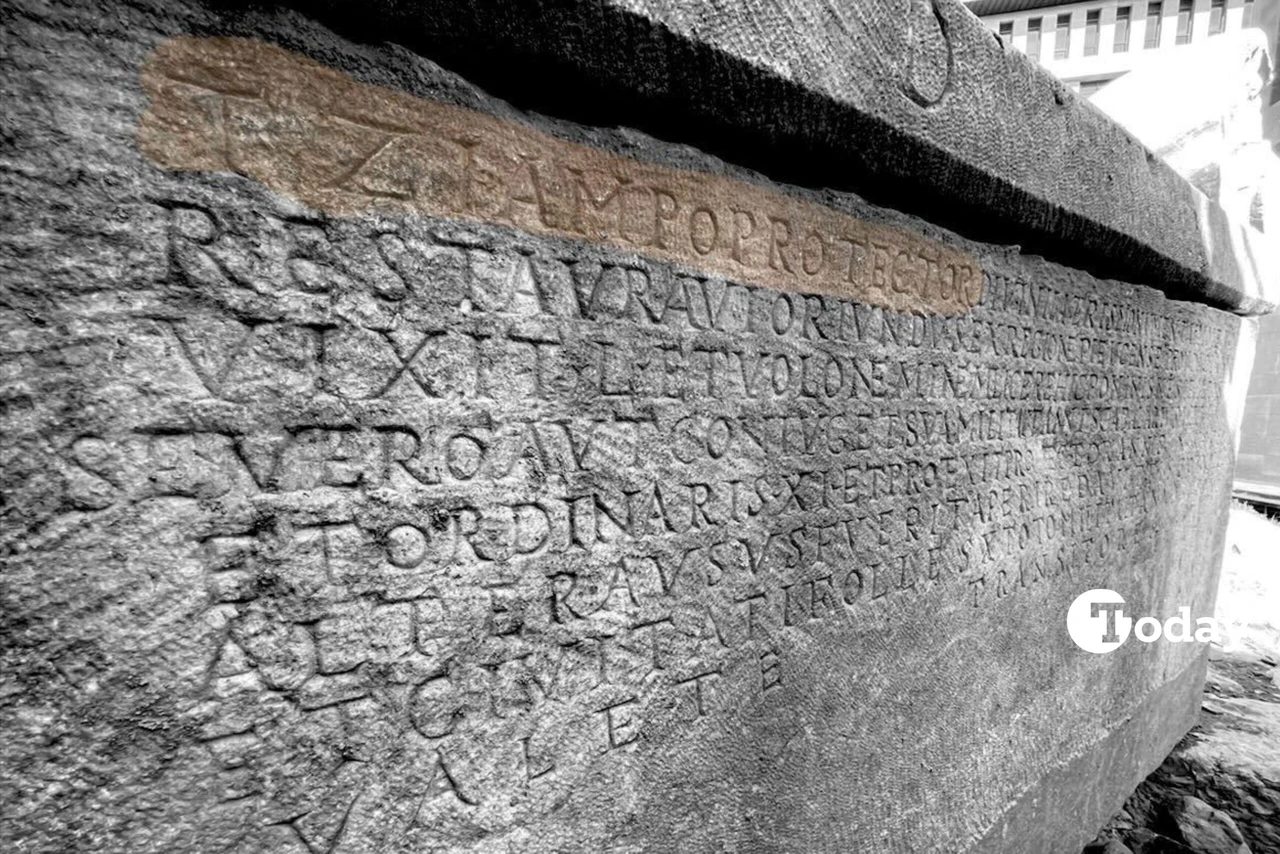Türkiye, Russia and Iran hold Syria talks on sidelines of UN meeting
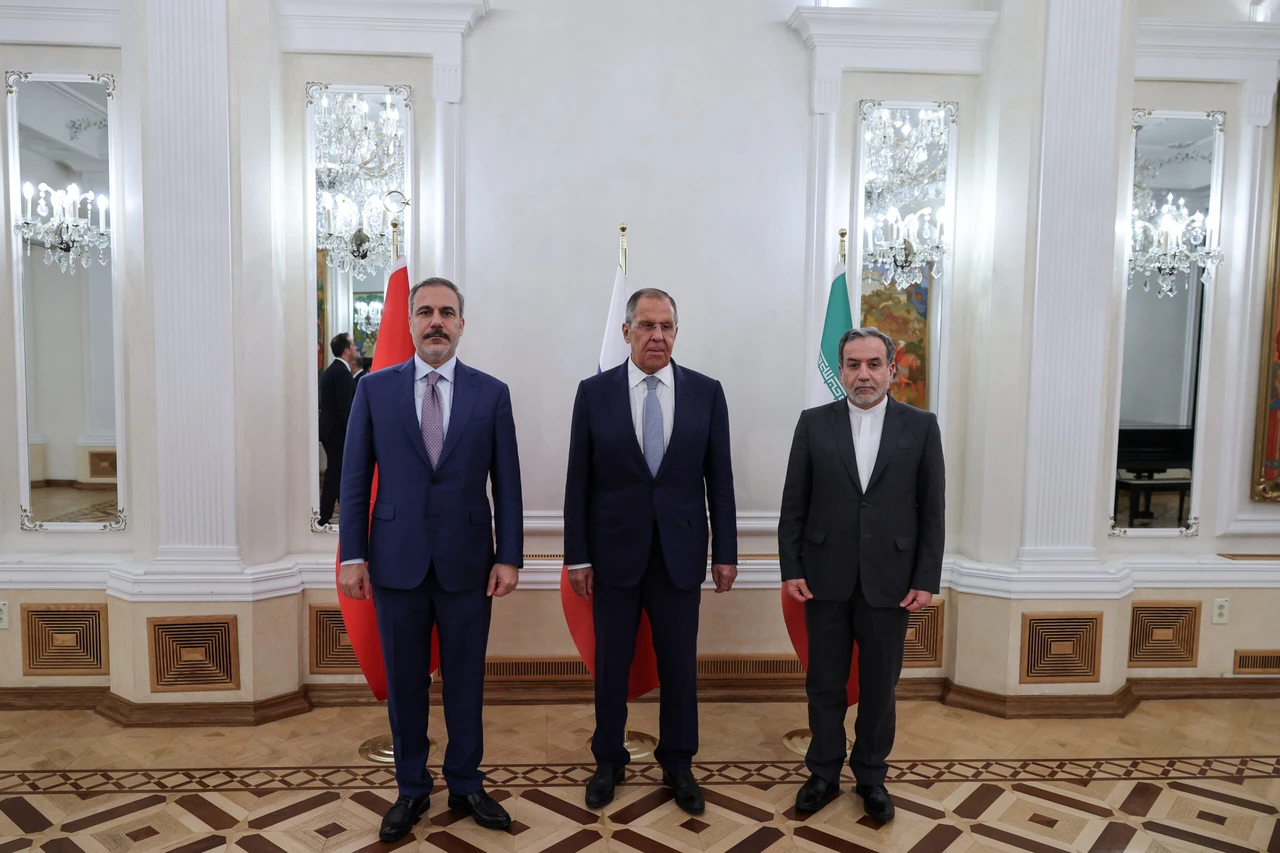 Foreign Ministers from Türkiye, Russia and Iran attended the Astana Platform Foreign Ministers Meeting. (AA Photo)
Foreign Ministers from Türkiye, Russia and Iran attended the Astana Platform Foreign Ministers Meeting. (AA Photo)
Foreign ministers from Türkiye, Russia, and Iran met on the margins of the 79th U.N. General Assembly session in New York to discuss the ongoing crisis in Syria.
The meeting was part of the Astana Platform, which was established to de-escalate tensions in Syria and pave the way for a political resolution.
Security, political, and humanitarian issues addressed
Hakan Fidan, Türkiye’s foreign minister, along with his counterparts Sergey Lavrov of Russia and Abbas Araghchi of Iran, addressed the current security, political, and humanitarian situations in Syria.
The ministers emphasized the importance of maintaining peace, especially in northwestern Idlib province, and called for restraint to prevent Israel’s attacks on Lebanon from triggering further violence in Syria.
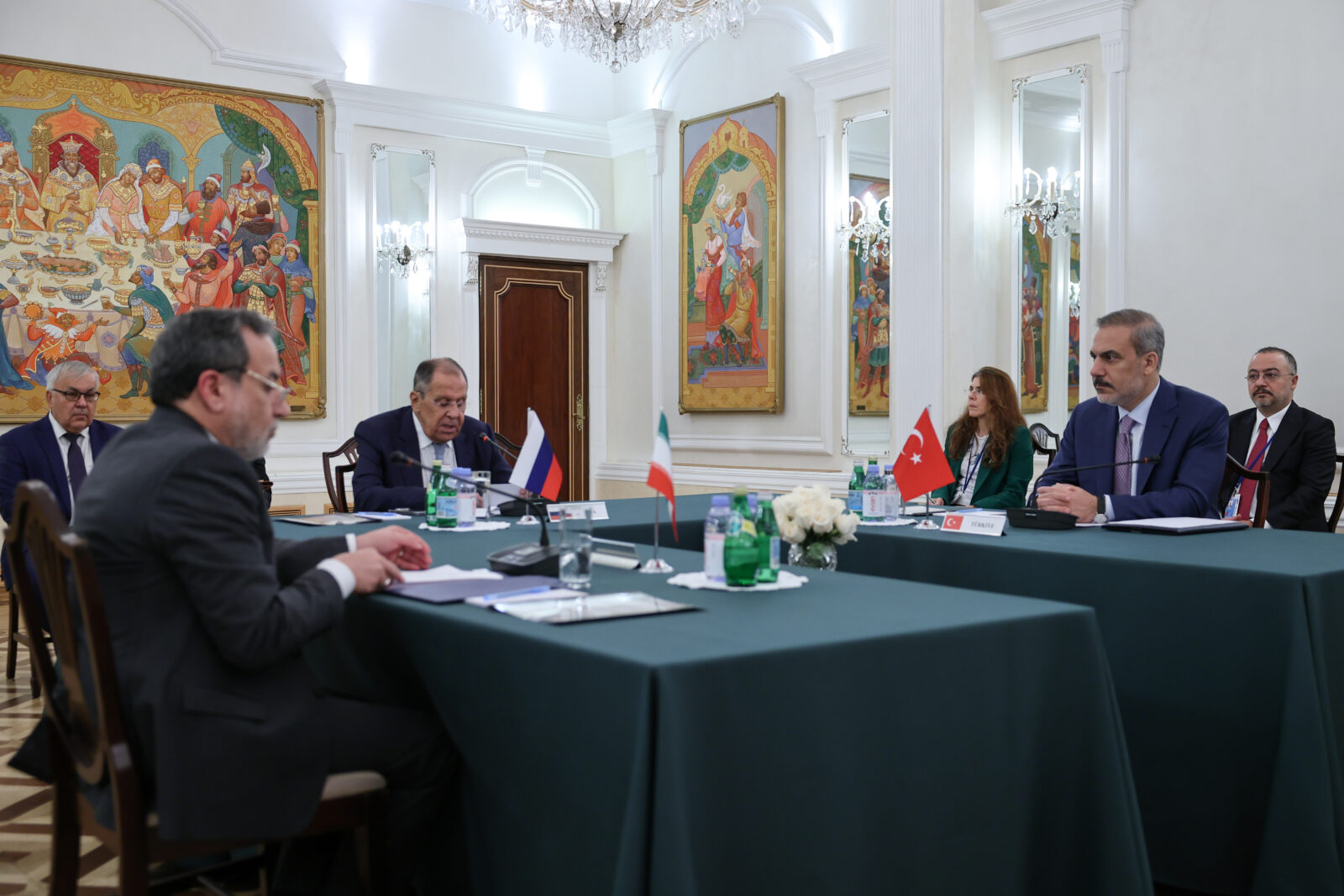
Concerns over terrorism, political process
During the meeting, Fidan expressed Türkiye’s ongoing support for reviving the political process in Syria and stressed the significance of the Astana Process in achieving peace and stability.
He raised concerns about the increasing activity of Daesh in the region and reiterated the importance of countering terrorist threats.
“The U..N should play a ‘leading role’ in resolving the conflict in Syria,” Fidan emphasized, highlighting the need for a comprehensive and collaborative approach to resolving the ongoing crisis.
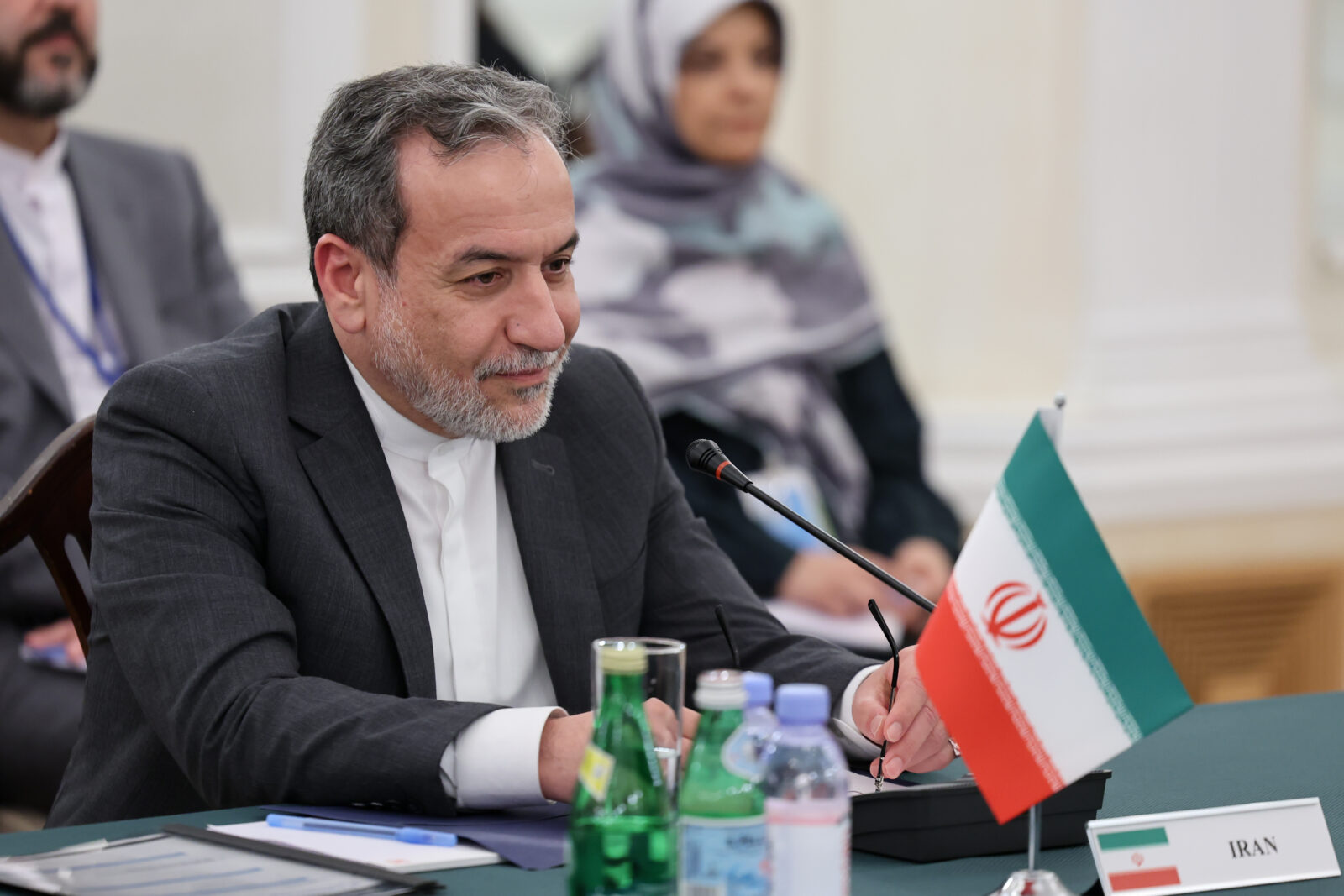
Focus on preventing escalation
The ministers underscored the need to prevent separatist terrorist organizations from exploiting the current situation.
Turkish diplomatic sources confirmed that discussions focused on ensuring that no group capitalizes on the instability to further violence or unrest in Syria.
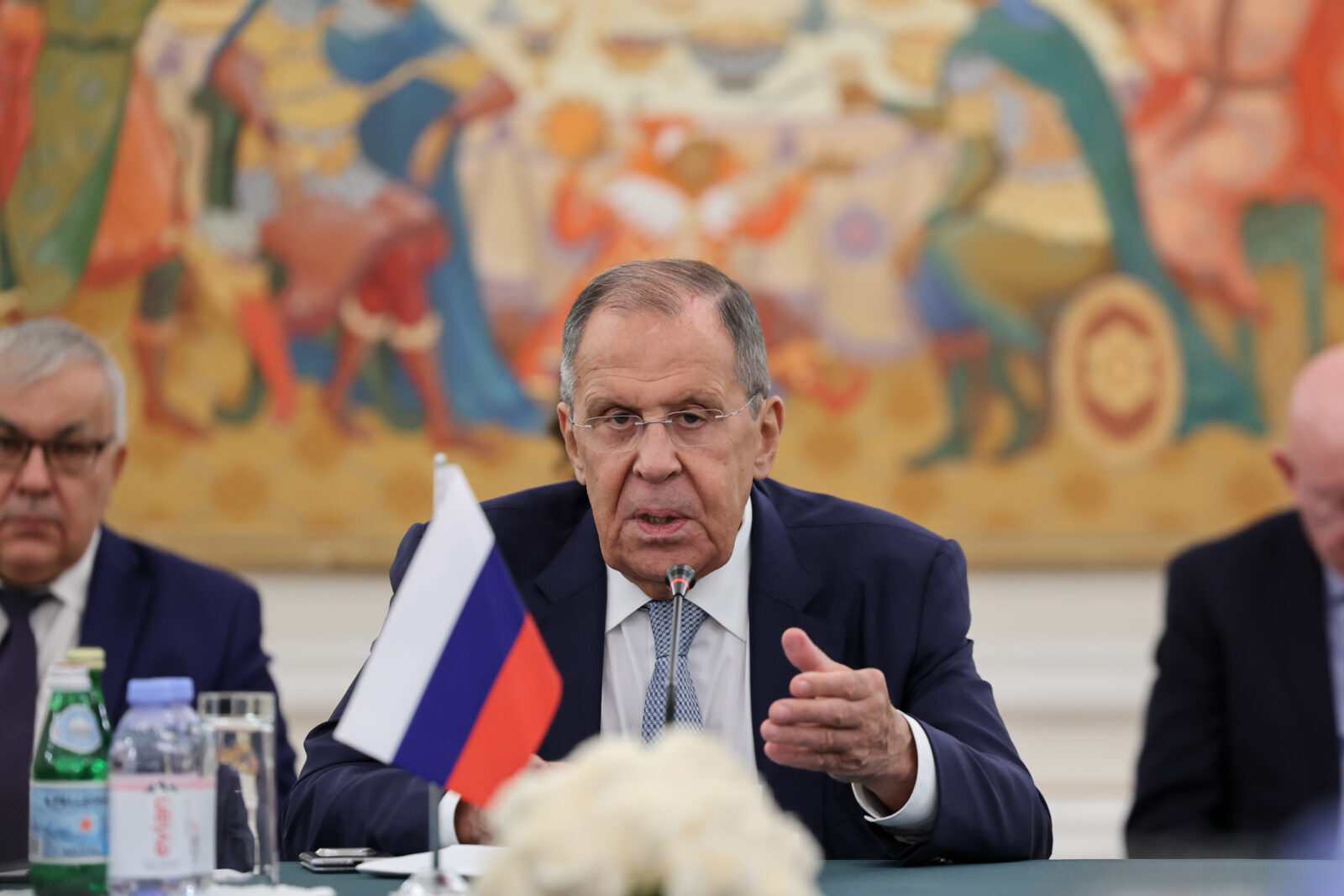
Astana process: Potential path to stability
The Astana Platform, involving Türkiye, Russia, and Iran, has been central to efforts aimed at de-escalating the conflict in Syria since it was established.
A recent meeting reaffirmed the platform’s role in promoting peace and preventing further deterioration of the humanitarian and political situation in the region.
Since 2011, Syria has been embroiled in a civil war, with the Bashar Assad regime responding to protests with overwhelming force, leading to one of the most devastating conflicts in the Middle East.
